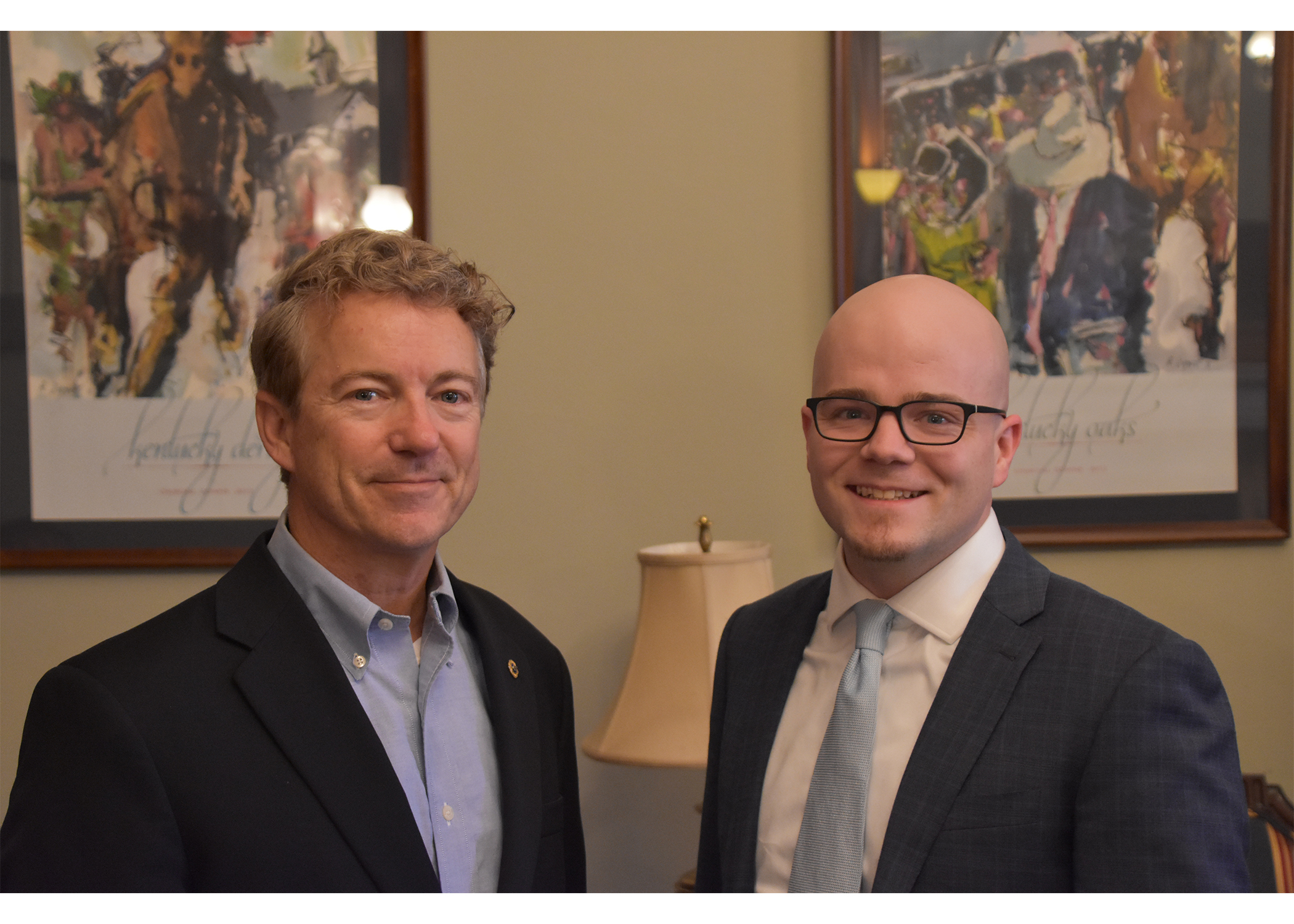Serving the First Branch has been the highlight of my career. Through 2018 I supported Senator Rand Paul’s work on cybersecurity, technology, and intelligence issues, including encryption and privacy, data breach policy, and drone security. Walking the halls of the Capitol is as stirring and humbling on week fifty as it was on week one. As my fellowship comes to a close, I wanted to share some thoughts that might benefit future fellows working to close the gap between policymakers and technologists.
Senator Rand Paul with Fellow James Gimbi. Photo by Andrew Westberry.
Placement. Fellows are given a ton of advice for picking an office, often conflicting, yet somehow all correct. The reality is that you have to understand your personal motives for coming to Washington before you know which advice to follow. Think about what you want to do with this experience after your fellowship is over. Do you want to do your tour of service and go back to your old job? Do you want to stay on the Hill? Are you there to advance a particular cause? Once you can confidently answer “why am I here?,” you can take on placement questions such as:
Should I work in a congressperson’s personal office or specialize in a committee?
Should I work in the House or Senate?
How are my goals affected by politics?
Do I want to focus on oversight or legislation?
Purpose. Ultimately, working on the Hill is a customer service job. You are there to benefit constituents, and I was pleasantly surprised at how seriously staffers take that responsibility. Senator Paul hangs large “Kentucky First” banners in every staff room and every constituent call is given serious attention. Remember that purpose in your meetings. Many constituents have serious concerns but lack the know-how to effectively engage staffers (see Gabe Kaptchuk’s excellent guide to congressional meetings here). Be generous - they may have prepared for weeks or months for the 15 minutes they spend with you, often taking personal time off work and spending their own money to visit DC. Ask questions until you fully understand their issue, and discover their “ask.” They may not have a specific ask in mind, but you can help them find it or connect them with someone who can.
“Know thyself.” No expert knows every contour of their field. Your experience is valuable, but the real force multiplier of a tech staffer is knowing how to find niche specialists. Learn to recognize when you may miss important nuance and find peers in your network to walk you through it.
Choosing battles. The entire country watched the Facebook hearings. Staffers, being no exception, talked about nothing else the entire week. But I used that week to focus on my projects without interruption while the tech policy community was too engaged to ask for meetings.
I had learned in my first few weeks that you won’t get much done if you chase everything worth chasing. The Hill is a reactive place. Prioritize, and be willing to cut, delegate, or give away ideas you may never have time for.
Timing is everything. Sadly, there is no policy without politics. Sometimes forces out of your control may make an objectively good idea impossible - for a time, at least. Do not be discouraged. Instead, draw on veteran staff to understand the factors at play. You may be able to use their knowledge to advance your idea when a better “window” approaches.
I was privileged to help on-board next year’s TechCongress fellows. They are exceptional. Their talent demonstrates the strength of the program and the tech community’s growing interest in public service. This is good news for Congress and good news for the public. I am excited to see how this year’s fellows work with the congressional community to cultivate technical capacity in government.

